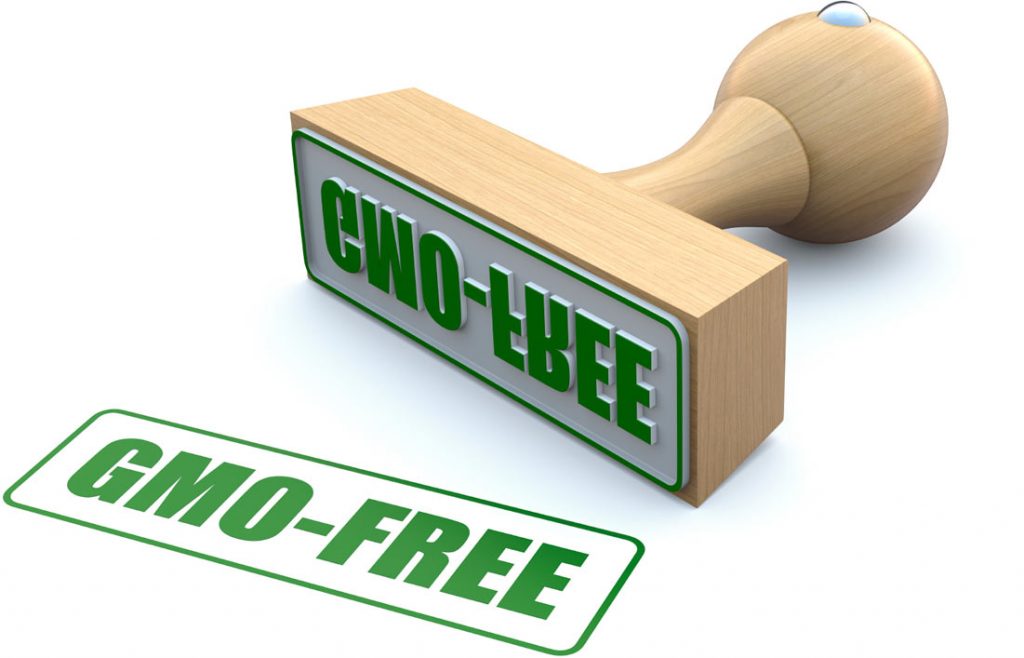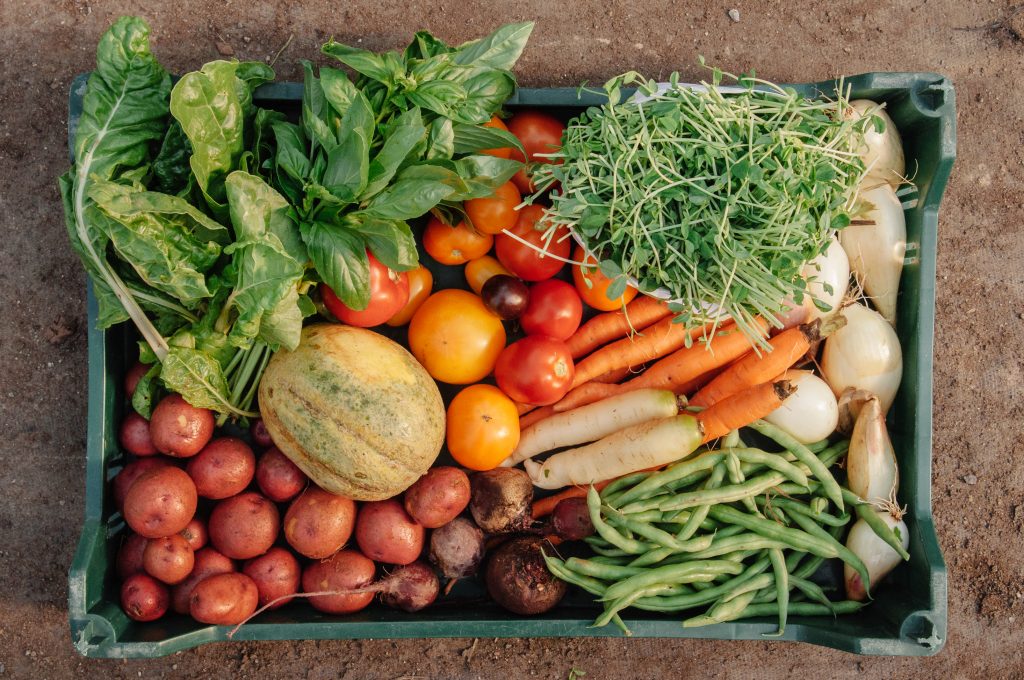Shopping at your local grocery store, you’ll often see foods labeled as “organic” or “non-GMO,” and the descriptions come with a certain amount of boasting. “100% Certified Organic!” or “Non-GMO Project Verified!” they say. But what do these labels actually mean?
First, many people may be surprised to learn that the terms are not interchangeable. Second, it’s important to note that some of these labels are often misleading in what they claim. Below, we’ll explore the definition of each of these terms, how they differ from each other, and what to look out for as you shop.
Non-GMO Foods

Sponsored Links
Image source: http://non-gmoreport.com
GMO stands for genetically modified organism. GMO foods can be fruits, vegetables, grains, or processed foods.
The Non-GMO Project is the non-profit organization that regulates GMO and non-GMO foods in the United States. They define GMOS as:
“… [organisms] whose genetic makeup has been modified using recombinant DNA methods (also called gene splicing), gene modification or transgenic technology. This relatively new science creates unstable combinations of plant, animal, bacterial and viral genes that do not occur in nature or through traditional crossbreeding methods.”
In layman’s terms, this means that foods that are truly non-GMO have not been manipulated by scientists, who may have changed the original DNA of the organism (food). Most of the time, the DNA is altered for what is called “herbicide tolerance.” This means that harsh, toxic herbs can be sprayed on a herbicide tolerant crop, and it will kill the surrounding weeds — but not the main crop itself.
Most developed nations, including Australia, all the countries of the European Union, and Japan do not believe that GMOs are safe. These countries require that GMOs get labeled as such. But in the United States, it is not required by law that food manufacturers label their foods as genetically modified.
This is what makes the Non-GMO Project so valuable. However, keep in mind that if a food is labeled “non-GMO Project Verified,” this does not mean that the food is also organic.
Organic Foods

Advertisements
Image source: http://everman.org
Organic foods can be fruits, vegetables, grains, meat, or processed foods.
The USDA (United States Department of Agriculture) is the regulating body of the National Organic Program in the United States. They define organic food production as:
… “an ecological production management system that promotes and enhances biodiversity, biological cycles and soil biological activity. It is based on minimal use of off-farm inputs and on management practices that restore, maintain and enhance ecological harmony.”
In layman’s terms, this means that foods produced organically do not use pesticides, herbicides, or fertilizers that are made from toxic, synthetic, or sewage sludge materials. In addition, organic animals that become organic meats cannot be fattened with antibiotics, steroids, or other drugs.
USDA certified organic foods are also — by definition — not allowed to be created with the use of GMOs. Therefore, all organic foods are also non-GMO verified by default.
So What Should You Buy?
In some ways, the information above simply makes buying food more confusing instead of clearing anything up. So here are some tips to help you find the best, most natural, and toxin-free food while you’re shopping:
• If you want the best foods, look for the organic label. This means the foods are organic and therefore, non-GMO by default.
• When looking for the organic label, however, only trust the “USDA Certified Organic” label. Other “organic” labels may not be legitimate and the products labeled that way may have non-organic ingredients in them.
• Remember that any food that is not labeled as “USDA Certified Organic” and not labeled as “non-GMO Project Verified” may very well have genetically modified organisms, herbicides, pesticides, antibiotics, steroids, and other toxins in it.
If you can avoid GMO and non-organic foods, do so. Non-GMO and organic foods are more expensive, but there is substantial evidence showing that these foods may be better for your health. After shopping, do not forget to keep these organic foods out of your fridge!



Comments